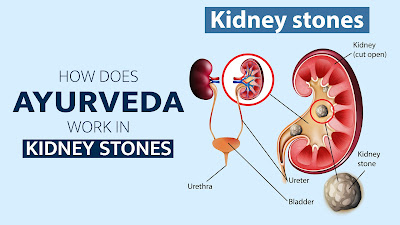 |
| Can a Kidney Cyst be Cured? |
Allopathy confirms and strongly believes that kidney cysts that grow in size can only be stopped through renal surgery, a risky procedure that can bring some serious after-effects of the surgery. Also, if consumed, any type of oral medicine will be ineffective on kidney cysts at the end-stage. However, some medications can prevent the progression of the cyst, but the problem remains inside.
If you’re in despair for permanent recovery of your kidney functions, switch to polycystic kidney disease ayurvedic treatment.
What is a kidney cyst?
A kidney cyst is a condition in which your kidney develops a cluster of round fluid cysts that grows inside your kidneys. There are only two types of cyst; you might have only one cyst known as a simple renal cyst that is mostly harmless and can be reversed with routine medications.
The second one is a poly renal cyst in which you have more than one cyst inside or around your kidneys that grows in size. Poly Renal cyst is more severe than simple renal cysts as it grows in size and can infect other organs nearer to your infected kidneys.
What are the symptoms of kidney cysts?
A kidney cyst is a chronic kidney disease that never shows visible signs in its infancy. Also, the symptom of kidney cysts depends on the condition of your kidneys or how much kidney function you have left with. Here are some primary symptoms of kidney cysts, including the following-
- Blood in urine
- Having frequent urges to pass urine
- Swelling on the abdomen
- Dark urine
- Fever and chills
- Feeling pain between the pelvis and ribs
# People with polycystic kidney disease may have some other signs of kidney damage, such as-
- High blood pressure
- Blood in urine
- Pain back or at your side
Diagnosis of kidney cyst
Kidney cysts only show visible signs when progressing with time. When symptoms get visible, a person loses almost 30 to 40% of their functioning. Therefore, it’s recommended to get your kidneys screened every year so that you can undertake certain medication to prevent the progression of disease in time-
Abdominal ultrasound
Ultrasound is a medical procedure done to get the images of your kidneys that helps your doctor to determine how many cysts are inside your kidneys and how big they are.
CT scan
CT scan means “computed tomography,” which is a process to get a detailed image of your kidneys. CT scan is painless and uses a series of x rays that create a clear picture to diagnose the condition.
Magnetic resonance imaging
A magnetic resonance test is done with the help of magnetic fields and radio frequencies that creates clear images of the kidneys’ internal sections.
What causes kidney cysts?
The exact reason for kidney cyst is hard to say, but doctors and researchers have concluded two possibilities that can be held responsible for developing cyst inside your kidneys, such as.
- Your kidneys have millions of microtubules; when they swell up, they create round sacs of fluid known as kidney cysts.
- The second possibility is that your kidneys get weakened and develop little pouches of the diverticulum ( the round or oval sacs of fluids).
When to see a doctor?
You need to seek medical attention if you feel any of the symptoms mentioned earlier in your health. A kidney cyst can be cured with routine medication; however, if you get a little late about knowing this problem, switch to polycystic kidney disease treatment in Ayurveda.
What are the complications of kidney cyst?
The complications of kidney cyst can vary on various factors, such as-
- How big is the cyst?
- From how long you have had cysts in your kidney
- How many cysts are there in your kidneys
Having one kidney cyst won’t harm your body; however, having more than one cyst inside your kidneys can severely affect your kidney functions. A person having more than one cyst is at risk of having some serious complications, such as-
- Having fever and pain due to infected cyst
- Cysts, if burst, can pain trigger excruciating pain in your side or back
- Urinary obstruction that prevents urine from releasing outside from the body.
What is the permanent solution to this problem?
The solution to this problem lies in Ayurveda. Ayurveda is the ancient art of natural healing that originated from the segment of Vedic tradition that talks about curing health complications naturally. The Polycystic kidney disease treatment in Ayurveda is a complex of several powerful herbs, leaves, and other natural products that gradually remove cysts from the kidneys without causing any damage to your kidneys.
How do herbs work well on enhancing kidneys’ functioning?
There are certain herbs in Ayurveda that are proven effective in curing kidneys’ functioning. Talking about kidney cysts, Ayurvedic medicine for kidney cysts is based on the bio-cleansing procedure of panchakarma, which removes obstruction, inflammation, or damage occurring inside your kidneys. The best thing about Ayurveda is that they don’t directly land on the symptoms, like other newly evolved medications. The herbs get into the primary drivers of the problem and promote healing in the affected area.






